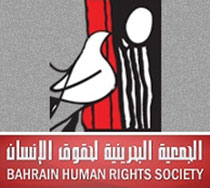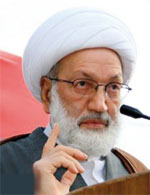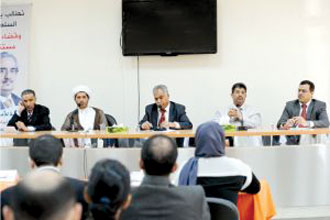
|
 |
 |
|
|
|
|
|
|
|
|
|
|
|
|
|
|
|
|
|
|
|
|
|
|
Reactions of Civil and Political Societies
|
 |
The Bahrain Human Rights Society welcomed Bassiouni’s report on 24-11-2011, believing it to be ‘full of important recommendations which, if implemented, could address several human rights violations in the country, especially as the authorities have already partially admitted their responsibility for the violations’. The Society also suggested forming a commission under the OHCHR (as it is the highest international body concerned with human rights) which would work towards implementing the recommendations within a set time frame. It also called for implementing principles of transitional justice, reconciliation and equity.
On the same day, The General Federation of Bahrain Trade Unions reiterated a recommendation in the report for reinstating sacked employees and compensating them, as this would promote hope for democracy and social justice in Bahrain. The Union also stressed that the politically motivated sackings were illegal, and called for holding those responsible accountable, as well as those who targeted cadres of the Union. These measures would guarantee that all practices which violate the right to freedom of expression and contradict Bahrain’s constitution, it’s international obligations and workers’ rights are abolished. The Union also stressed the importance of safeguarding the dignity of workers returning to their jobs by maintaining their former job ranks and positions. It also encouraged employers to refrain from marginalising reinstated workers or threatening them with losing their jobs once again if they resume expressing their right to freedom of speech or engage in union work.
In a press release on 24-11-2011, the Bahrain Institute for Political Development made the following comments: ‘Considering the momentous events which Bahrain has experienced, the King of Bahrain’s decision to form an independent commission of enquiry was courageous indeed, and hailed the beginning of a new political era through an honest assessment of past events, which guarantees the continuation of the reform project and national reconciliation. The moment requires mutual agreement by all sectors of Bahraini society in order to move beyond the latest crisis towards achieving democratic change, particularly in the human rights field, and guaranteeing the rule of law, as well as developing current constitutional institutions’. The Institute added that the report should be considered a unique achievement in implementing national reconciliation and justice, and it highlights Bahrain’s commitment to its international obligations in the field of human rights. The Institute also praised the seriousness of the Bahraini Government’s efforts in implementing the recommendations of the report, and its eagerness to claim responsibility for its actions and learn from its past actions in order to move towards a more effective performance, which fulfils the ambitions of Bahraini citizens. The Institute added that it looks forward to a more stable atmosphere for implementing comprehensive political, social and economic reforms which includes promoting national unity and reconciliation.
 |
Sheikh Isa Qasim (25-11-2011): The commission responsible for the report was chosen by the Government, and so any documentation of violations it provides is in fact a confession by the Government itself of its shortcomings. If the report claims to steer away from politics in Bahrain, then the widespread and dangerous violations of human rights it documented implies that only an urgent and radical political solution can succeed. In light of the report (which has been accepted by the Government), the State is now obliged to compensate all victims, as well as punishing those responsible for their crimes. And although it must also adopt legislations and measures to prevent the reoccurrence of such violations, nothing can substitute genuine political reforms and accepting all the political demands of the Opposition, which are irreversible. It is not in the interest of our nation to be satisfied with temporary solutions to soothe our pains.
Shaikh Adnan Al-Qattan (25-11-2011): Bahrain is experiencing a historical moment with HRH the King’s positive response to the Commission of Enquiry’s report. This report reflects the leadership’s commitment to uncovering the truth behind events in the latest crisis and its eagerness to correct mistakes by taking on board the Commision’s recommendations. He added that it is crucial for all to take advantage of this historic moment in order to end the chaos which is affecting the country’s national unity, and he called for reconciliation, cooperation and mutual agreement.
Shaikh Ali Matar (25-11-2011): The report will be in the interest of the security and stability of Bahrain as soon as the competent individuals in charge of the implementing commissions start their work. We trust that our leadership has the higher interests of the nation in mind, and we also demand that all those responsible for violating the rights of Bahrainis are held accountable, be they ministers, politicians or members of the opposition. There have been many hasty judgements and oppositional views of the BICI based on a few excerpts of its report, which in fact contains hundreds of pages and many issues. It is imperative that we deliberate carefully before passing judgement on any party or accusing them of treachery, as well as adopting a rational approach that does not exaggerate fears and rumours or spread information without verifying its source and veracity.
Second: Political Societies
 |
On 23-11-2011, the Gathering of National Unity thanked the BICI for its efforts, despite its reservations concerning some content of the report. It also expressed its respect for human rights principles and the actions which can lead to justice for all. The Gathering also stressed that the commission for implementing the recommendations should be independent, competent and professional, as well as being led by respected national figures. It also rejected calls for an international or external commission, and encouraged the public to beware of hasty reactions to the report which could affect civil peace and national unity. The Gathering expressed its support to freedom of speech, but rejected several of the recommendations including the immediate dropping of charges against political prisoners, which it sees as a strictly legal matter beyond the jurisdiction of Bassiouni’s commission.
On 24-11-2011, Al-Wefaq announced its preliminary opinion of the report and its recommendations in a press conference led by the Assistant Secretary General of the |Society, Khaleel Marzooq. Marzooq said that the Society needs time to study the report, and expressed his appreciation for its recommendations. He stressed that democracy and for the people to rule themselves and be the source of powers are the core issues of the current crisis, and that the Society does not accept injustice against any citizen whatever their race or sect: ‘what we are calling for is a political system in which no one is oppressed’.
The Islamic Forum (27-11-2011): the BICI report constitutes a historical chance to heal our national wounds, and it should be used in the interest of the country, such as spreading human rights culture and respect for the law, whilst rejecting discrimination. As a matter of principle, we are against the violation of any citizen or human being’s rights on our land. The law must be implemented, the dignity of oppressed individuals must be safeguarded and those responsible must be held accountable, whoever they are.
 |
| Oppositions Press Conference |
On 26-11-2011, The Democratic Progressive Forum welcomed the BICI report, and considered it sufficiently independent and professional, whilst calling upon the Government to commit to implementing its recommendations. The Forum also saw that the report expresses the legitimate demands of the Bahraini people and highlighted the different kinds of violations which occurred during the protests. It also stressed that the perpetrators of crimes should be brought to justice, and that no one should be beyond the reach of the law. It added that the Government should begin compensating victims and correcting its mistakes by releasing political prisoners and detainees, stopping trials and reinstating workers, which would prepare an atmosphere that prevents these crimes from reoccurring. It also called for an end to incitement in the media and hate speech from all sectors of society and holding those responsible accountable, as this particular media approach has had a devastating effect on Bahrain’s national unity. Finally, the Forum recommended embarking on a real national dialogue which lays the ground for the desired reforms and national reconciliation, in order to find long-term solutions to the current political and constitutional crisis in Bahrain, and fulfil popular demands.
On 27-11-2011, Wa’d Society said that implementing the recommendations of the BICI report is urgent and necessary. The heart of the report revolves around terrible descriptions of torture by several branches of the security services, which led Bassiouni to recommend that the security forces should only be concerned with collecting information and not detaining or executing punishments.
The Unionist National Gathering (27-11-2011): The State must accept that there can be no stability in Bahrain without a political solution to the current crisis, and international human rights bodies should oversee the implementation of Bassiouni’s recommendations to ensure they are properly executed. We want to see the recommendations of the report implemented and the State is obliged to do so because it formed the Commission in the first place.
The National Gathering (27-11-2011): The report points the finger of blame to certain official bodies for violating human rights of citizens, and we believe that the solution to the crisis can only be political and constitutional. The report has provided the perfect opportunity for change if a genuine political will for change exists. It is now possible to begin reorganising the political structure of the State, beginning with the Constitution and following on to all the details related to executive, legislative and political areas.
On 24-11-2011, the Justice and Development Society said that it considered both the BICI report and the King’s speech as an attempt to regain national cohesion and build the bridges of trust between different sectors of Bahraini society. It also said that the report was transparent and realistic, highlighting shortcomings and providing solutions and heralds the dawn of a new era in Bahrain. ‘We as Bahrainis aspire towards a speedy implementation of the recommendations to enable us to move towards the future and overcome the past’.
On 23-11-2011, the Independent Parliamentary Bloc regarded the report as a momentous event in Bahrain’s democratic endeavour and a substantial contribution to Bahrain’s commitments to human rights and the rule of law. The Bloc also praised the State’s cooperation with the commission by pledging to hold those responsible for crimes related to security forces, establishing a compensation fund for victims, and promoting the independence of NIHR. These are responsible steps which highlight the Government’s commitment to justice and equity, and that it aims to apply the law equally which reinforces its national strategy for promoting human rights. It also called upon all Government bodies and social and political civil groups to accept the findings of the report, as this will help all sectors of society to open a new page, regardless of their religious, racial, ideological or sectarian affiliation. This will also build mutual trust and promote peaceful coexistence and national unity, as well as safeguarding Bahrain’s stability, security and national interests. Most importantly, it will ensure that the wheels of political, developmental and democratic reform start moving again.
On 23-11-2011, the Bahrain Parliamentary Bloc welcomed the report and encouraged all those concerned to accept its results and recommendations in a spirit of democracy and forgiveness. It also added that admitting mistakes and punishing those responsible in order to discourage the reoccurrence of violations, is the only means of continuing national development on all levels. The Bloc added that the project outlined in the BICI report, if dealt with in a pragmatic and wise manner, can promote the course of reforms in Bahrain.